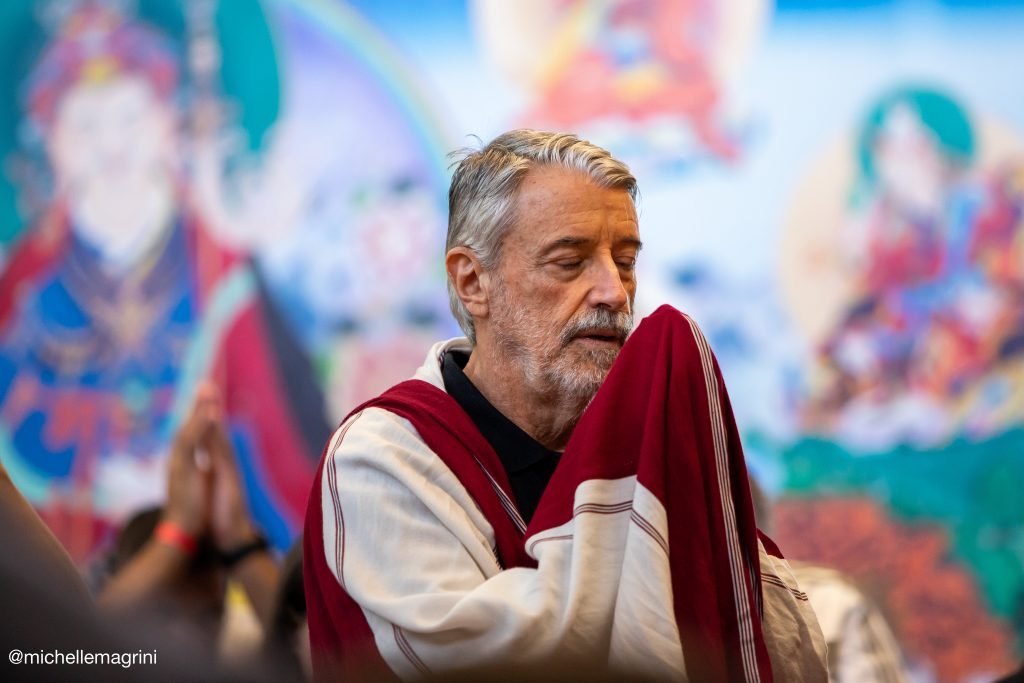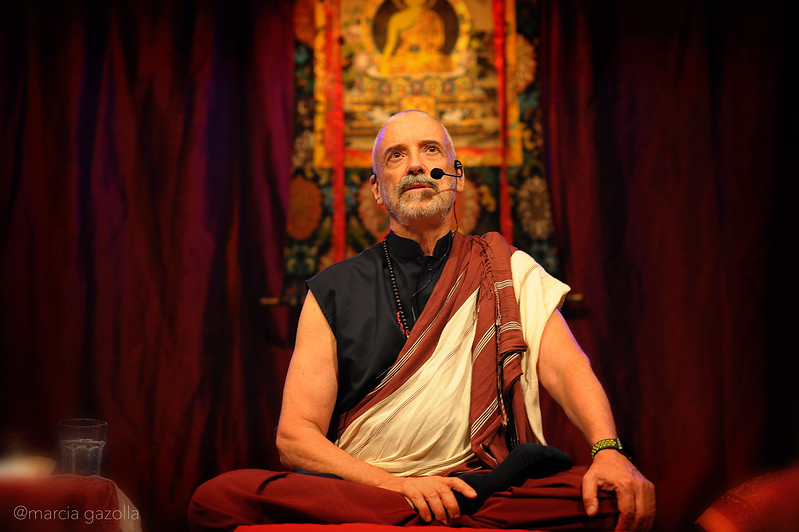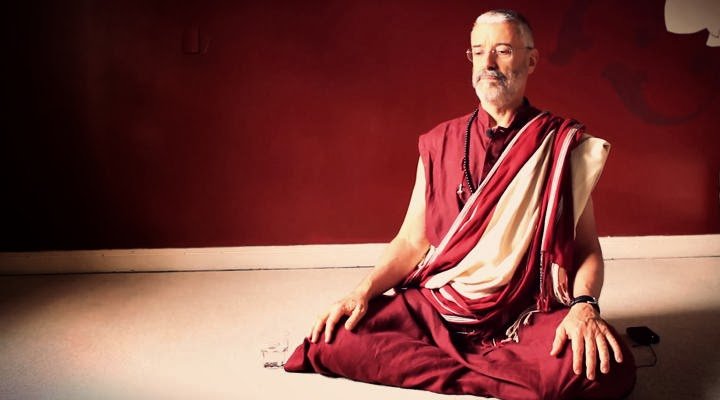Le CEBB ou Centre d’Études Bouddhistes Bodhisattva est une organisation bouddhiste brésilienne axée sur l’étude et la pratique du bouddhisme. Elle a été créée par le Lama Padma Samten, physicien et professeur bouddhiste brésilien, disciple de Chagdud Tulku Rinpoché, un maître de la tradition bouddhiste tibétaine Nyingma.
L’approche du CEBB combine les enseignements traditionnels bouddhistes avec une perspective moderne, les rendant accessibles à un public contemporain. Il vise à offrir une voie de développement spirituel et de transformation personnelle basée sur les principes bouddhistes, en mettant l’accent sur la compassion, la sagesse et la pleine conscience.
Voici un bref aperçu du fonctionnement du CEBB :

Le maître bouddhiste Lama Padma Samten a aidé d’innombrables personnes dans leur vie quotidienne et leurs relations avec des enseignements issus des domaines les plus divers de la connaissance.
Physicien, titulaire d’une licence et d’un master de l’Université Fédérale de Rio Grande do Sul (UFRGS), Alfredo Aveline a travaillé comme professeur de physique et chercheur de 1969 à 1994. Au cours de cette période, il s’est consacré en particulier à l’examen de la physique quantique, une théorie dans laquelle il a trouvé une affinité avec la pensée bouddhiste.
Au début des années 1980, il approfondit son intérêt pour le bouddhisme pour fonder en 1986 le Centre d’Études Bouddhistes Bodhisattva (CEBB). En 1993, il est accepté comme disciple par Chagdud Tulku Rinpoché, et en 1996 il est ordonné lama, un titre qui signifie leader, curé et professeur.


Hortas escolares (School Gardens) is a project of the Federal Institute of Education/RS that, through the EcoViamão program, covers 28 state schools, 1 municipal and 1 private.
Making classes more dynamic, in an active and interdisciplinary learning environment, and also promoting awareness of environmental responsibility, sustainability, healthy eating and cooperativism are objectives of the extension project Hortas Escolares Agroecológicas, of the Campus Viamão do Instituto Federal do Rio Grande do Sul (IFRS).
Fellows help in the productive and pedagogical process, in addition to providing support with inputs and tools through the EcoViamão Program.
Instituto Caminho do Meio facilitates the planning and execution of this project, providing support to students and scholarship holders.
Experience carried out by Instituto Caminho do Meio (ICM) which is part of a non-school education movement for young people aged 16 to 30.
The 108 Horas de Paz promotes dialogues, lectures, dream circles and cultural activities in favor of a Culture of Peace.
“Our intention is to reinforce horizontal networks of interdependence, compassion and collaboration, which become especially important in times of heightened social and environmental issues. We believe that by strengthening our joint movement based on positive and broad visions and giving visibility to relevant and constructive initiatives, we can generate action that makes sense and that will help us build better environments beyond conflict and crisis”
Ricardo Pellegrini, president of ICM – Instituto Caminho do Meio.

Bodisatva is the first buddhist magazine in Brazil. Founded by Lama Padma Samten over 30 years ago, it is a communication platform dedicated to translating and disseminating wisdom content from authentic lineages into Portuguese, as well as publishing texts produced by masters and practitioners from our own country. It has 34 printed editions.




